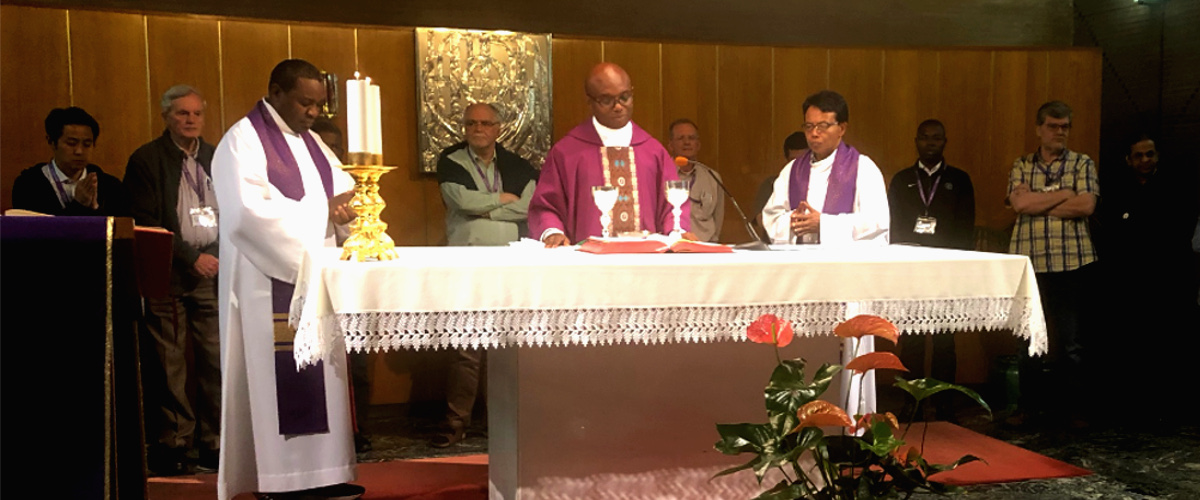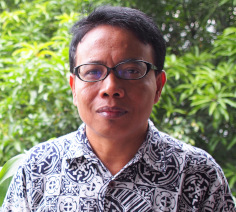
Fr Adrianus Suyadi SJ concelebrates Mass during the Ignatian leadership and discernment meeting in Rome
I am grateful to have been a part of the Ignatian leadership and discernment meeting in Rome. The combination of community prayer, personal reflection, group sharing and discussions gave a balance to how we as participants explored our mind, heart and will. Our diversity, coming from the six Jesuit conferences, only served to enrich our experience.
The Constitutions of the Society of Jesus offer very rich elements of leadership that can be applied not only by Jesuits but also by anyone who wants to learn about Ignatian leadership. Ignatian leadership is deeply rooted in discernment and the Spiritual Exercises. As a Jesuit, I can share this rich Ignatian spirituality with my co-workers, partners and anybody who is interested to learn.
Although I have read the Universal Apostolic Preferences (UAPs) several times, I was moved by Father General’s address that the UAPs should be approached from a spiritual perspective. They are inspirations rooted in the discernment of the Spirit and spiritual motivations that can move people to implement them. They are also universal in the sense that they are not only for Jesuits and our lay collaborators but can be offered to others as an inspiration in responding to and addressing the problems within and outside the Church.
Ignatian leadership is deeply rooted in discernment and the Spiritual Exercises. As a Jesuit, I can share this rich Ignatian spirituality with my co-workers, partners and anybody who is interested to learn.
The abuse crisis offers lessons in leadership and discernment. A lack of both has kept sexual abuses in the Church “hidden” for a long time. Policies, systems, procedures and codes of conduct for handling sexual abuse are sadly not in place. I was shocked and sad to hear Sr Pat Murray IBVM share not only about cases of sexual abuse experienced by women religious but also other forms of non-sexual abuse, such as bishops or priests who employ sisters as unpaid domestic workers and treat them like “servants”.
Victims of abuse and indeed the larger society are now questioning the integrity of the clergy who violate the law of love and human rights to which they should proclaim and give witness. In a way, this painful experience puts the Church in the First Week of the Spiritual Exercises. We are sinners, but we are called to be His companion for His mission in spreading the Good News. The courageous leadership of Pope Francis in this very difficult time brings hope that the Church will move forward to the Second Week of the Spiritual Exercises: meditating on the life of Jesus and conforming our life to that of His. Ultimately, these abuse cases remind me to continuously reflect on my religious life as a Jesuit.
Those of us who were chosen to attend the meeting constitute a community of practice for communication and collaboration in the implementation of the UAPs. Matthieu Daum introduced to us the U theory, a tool to help us carry out the UAPs. It offers an integrated process of sensing, presencing and realising – a very Ignatian way of implementing a cycle of action and reflection. My hope is that we can use the UAPs as points of personal prayer and reflection, truly guiding us in our exercise of leadership in our networks, communities and ministries.
Watch this video summary of the five-day meeting in Rome:







